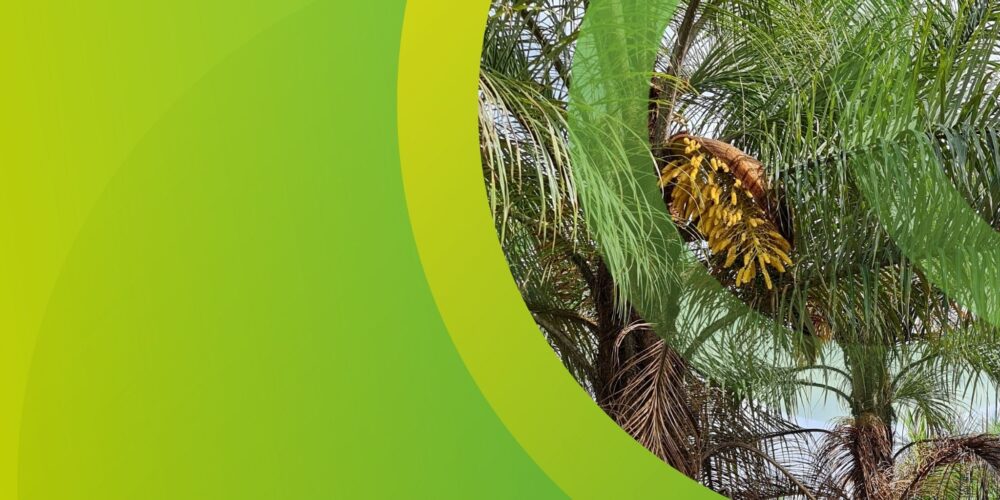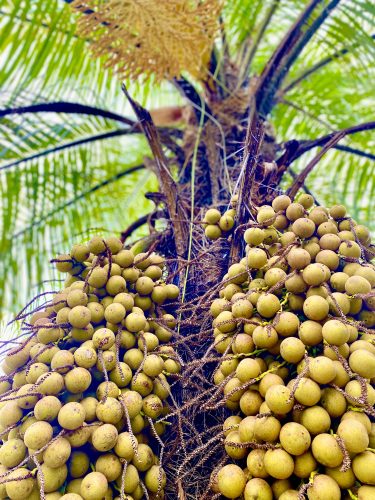

PT
“There are not truly sustainable industries without sustainable feedstocks and sustainable supply chains. Nature is the beginning and the end of everything” Francisco Blanco

1) Agroforestry
Systems
Agroforestry is a land-use management system that merges trees and agriculture (crops and/or animals). It is a sustainable and regenerative form of agriculture that mimics nature, creating diversified, efficient, and climate-friendly systems. It helps the restoration of fauna and flora, transforming areas into environments similar to natural ecosystems.

2) Bio-Industrial
Clusters
S.Oleum bio-industrial clusters are integrated with agroforestry systems to maximize circularity, the use of natural resources, and the use of production inputs of both systems, obtaining the maximum productive efficiency with the minimum environmental impact.
S.Oleum's system has its main pillar the "Zero Waste Concept", where nothing is wasted. Biomass from agroforestry and residues from bioindustries are converted into biofertilizers, biochar, bio-oils, and bio-gas, among others, and are reused by the production process in the form of nutrients, soil improvers, energy and carbon to be sequestered. This kind of arrangement is only possible with effective management and the application of cutting-edge technologies.

Sustainable
Feedstocks
Sustainable Feedstocks are produced according to the following characteristics
• They are mainly produced in degraded or low productivity areas.
• Are produced in regenerative agroforestry systems and with a positive impact on nature.
• Will not be produced in areas that were deforested after 2008.
• Not produced in tropical forest areas.
• They do not require public subsidies for the economic viability of the culture.
• Have ultra-low or negative carbon intensity.
• Promote and increase food production through agroforestry systems.
• Generate positive social effects in the producing regions.
• Are scalable.
S.Oleum is a Brazilian company dedicated to the production of sustainable feedstocks with negative carbon intensity at a large scale to transform the energy, chemistry, and food industries through forest restoration.
Brazil is the most biologically diverse country in the world and is home to more than 200 species of Native Oil Trees.
We started our Research & Development (R&D) work on Brazilian Oil Trees with the Macaúba, due to its unparalleled characteristics of sustainability, productivity, scalability, rusticity, adaptability, versatility, and capabilities to recover degraded areas. S.Oleum system will apply the same research, development, and domestication process with other native species.


Macaúba (Acrocomia aculeata) is an oil tree native to Brazil’s biodiversity. From its fruit, all can be used. From its fruit, it is possible to extract vegetable oils, highly nutritive proteins & fibers, biomass with high energy intensity, and fatty acids that can be applied by several industries.
Macaúba is highly productive and resilient to water shortages and wildfires, making it an excellent option for reforestation of degraded areas. Furthermore, it can adapt to regenerative forms of agriculture such as agroforestry systems with ultra-low carbon emissions, standing out as a very sustainable alternative.
Macaúba naturally flourishes especially in tropical savanna-like biomes, such as the Brazilian Cerrado. In Latin America, Macaúba is widely distributed in the tropics and subtropics from México to southern Brazil, Argentina, and Paraguay.
In Brazil, Macaúba can be naturally found across the tropical savanna region known as the Brazilian Cerrado, from the São Paulo state in the South to the Maranhão state in the North.





Macaúba-based products provide multiple nature-based solutions to help several industries boost their transition from a fossil-based economy to a sustainable and carbon-negative economy.

Advanced Biofuels (HVO & SAF).
Energy.
Low Sat Fats & Oils.
Low Trans Fats & Oils.
Cosmetics.
Bio-Lubricants.
Natural Solvents & Surfactants.
Foods.
Mining.
Foods.
Specialty Fats & Oils.
Cosmetics.
Natural Solvents & Surfactants.

Functional Foods.
Animal Feed.
Ingredients for Plant Based-Foods.
Functional Foods.
Ingredients for Plant Based-Foods .(especially substitutes for milk and dairy .products).

Política de Privacidade – Termos de Uso – ©2022 S’Oleum, All Rights Reserved. por pluralweb.biz